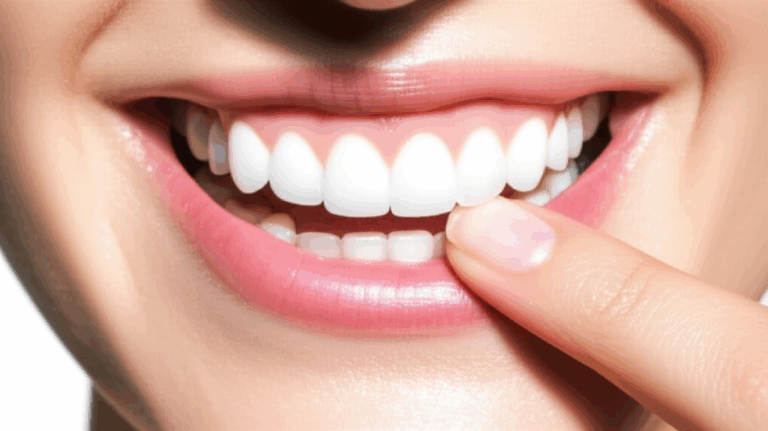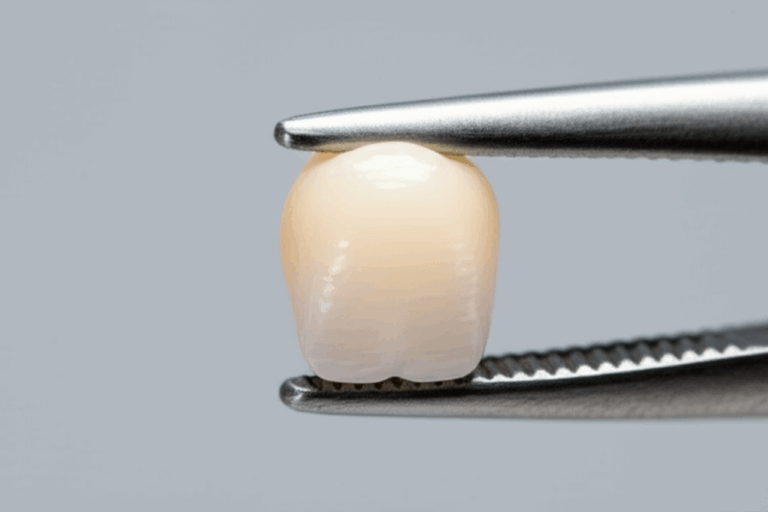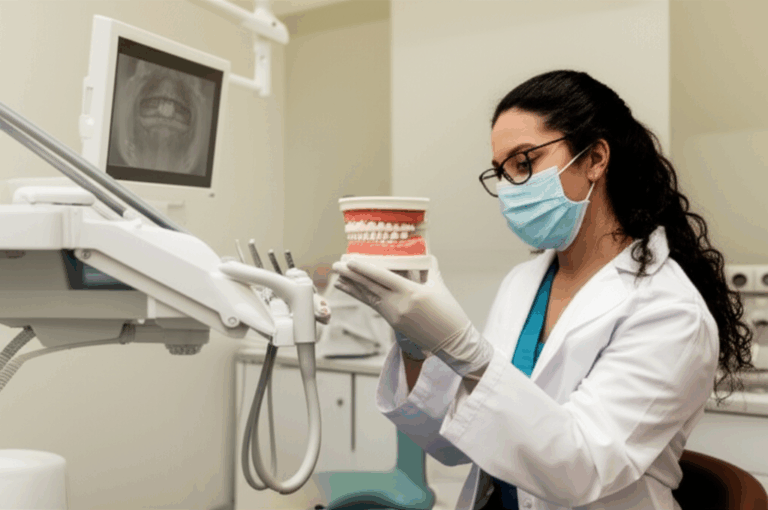
Does Medicaid Cover Dental Implants in NY? Your 2024 Guide to Coverage & Affordable Options
Are you wondering if Medicaid covers dental implants in New York? You’re in the right place! In this guide, I’ll break down everything about Medicaid’s dental coverage, what “medically necessary” means, how much dental implants really cost, and cheaper ways you can take care of your teeth. I’ll share personal stories, real examples, and easy-to-get help anyone can use. You’ll also find local resources, step-by-step help, and tips to get the care you need.
Table of Contents
Why Is This Guide Important?
Losing teeth can make you lose your confidence. For lots of people, Medicaid is their only way to get health care, but getting dental implants with Medicaid in NY isn’t so easy. You might feel confused, worry about prices, or feel upset after hearing “no” from your plan. I’ve been where you are, making calls, filling out forms, and learning things the hard way.
This guide uses real stories and easy advice, so you’ll know what to do. Here’s what you’ll see:
- What Medicaid really pays for (and what it doesn’t)
- Rules for serious medical needs
- Cheaper options if you get denied
- How to handle paperwork and appeals
- Where to find local help and clinics
- Ways to fix your smile, even if you can’t get implants
What Dental Services Does NY Medicaid Cover for Adults?
When people ask about Medicaid and dental care in New York, I always start with the basics. New York Medicaid has gotten a bit better, but dental help is still limited.
These dental services are usually covered:
- Regular cleanings and checkups
- X-rays
- Fillings for cavities
- Pulling teeth
- Root canals if the tooth can still be fixed
- Gum care
- Dentures and partials for people missing a lot of teeth
- Some bridges
Medicaid pays for these because they help you eat, talk, and stay healthy. But there’s a difference between what’s important and what’s just to look good.
Table: Typical Adult Dental Services Covered by NY Medicaid
| Service | Covered? | Notes |
|---|---|---|
| Exams & X-rays | Yes | Regular and to find problems |
| Fillings/Root Canals | Yes | If you need them for your health |
| Extractions | Yes | If a tooth can’t be fixed |
| Dentures/Partials | Yes | Basic fake teeth |
| Implants | Rare/Exception | Only if nothing else works |
| Cosmetic Procedures | No | Like whitening or making teeth look better |
Is There a Difference Between Medical and Cosmetic Dental Procedures?
Yes, for sure. This might be the most important thing about Medicaid and dental work. Medicaid uses the phrase “medically necessary.” If a treatment is medically needed, Medicaid is more likely to pay for it.
For example:
Maria, a real Medicaid patient in Queens, needed new teeth. Her dentist said implants would feel better and let her chew more things, but dentures would still work okay. Medicaid saw this as a choice, not a need. So, Maria got dentures, not implants.
What counts as cosmetic? Stuff like whitening, fixing up your teeth just to look better, or straightening isn’t covered by Medicaid.
But—if you have a true medical reason why only an implant will work (like if your jaw can’t hold dentures), Medicaid might look at it.
Does NY Medicaid Cover Dental Implants in 2024?
Here’s the hard truth: New York Medicaid almost never pays for dental implants. They think implants cost too much and should not be the first thing to try. I know—it hurts.
But, there are a few small exceptions. If your doctor or dentist can show:
- You can’t wear dentures or bridges (maybe because of bone loss or surgery)
- Your mouth or jaw doesn’t work with basic fake teeth
- You have a health problem that really needs an implant
Then, Medicaid might say yes, but only after checking everything. They want to see medical files, X-rays, letters from doctors, and proof that nothing else worked.
Short story:
Sam had a tumor taken out and lost part of his jaw. Regular dentures didn’t work. With help from his doctors, he got Medicaid to pay for special implants after many months of trying.
How Do Medicaid Managed Care Plans Affect Implant Coverage?
Most people on NY Medicaid get their care through a Managed Care Plan. These are insurance companies like Fidelis Care, Healthfirst, Empire BlueCross BlueShield HealthPlus, UnitedHealthcare Community Plan, DentaQuest, or Healthplex. Each one has its own list of what they pay for.
What does this mean for you?
You have to call your plan or check its website to see:
- What dental care is paid for, and what isn’t
- Which dentists take your plan
- How to appeal or complain
Tip: Always double-check; what’s true for one plan may not be for another. You can use online tools like DentaQuest and Healthplex to search for dentists who take Medicaid.
What Is Prior Authorization and Why Does It Matter?
If you hope Medicaid will pay for a big dental job—like an implant—you must get prior authorization.
Here’s what happens:
It’s like asking a teacher if you can leave class early. You need a really good reason and the proof to back it up.
If your dentist isn’t used to Medicaid paperwork, find one who is. This step is super important.
What Options Do I Have If Implants Aren’t Covered?
Don’t give up! There are a lot of smart ways to take care of your teeth even when Medicaid says no to implants.
1. Dentures and Bridges (Covered by Medicaid)
These are the usual choices. Full and partial dentures, and sometimes bridges, are FREE with Medicaid. They work for many people and can be made or fixed for you.
Want to learn more about things like removable dentures made in special dental labs? This page has lots of info.
Remember: Dentures might not feel as cool as implants, but lots of people are happy with them and can eat most stuff.
2. Dental Schools and Clinics
Places like NYU College of Dentistry and Columbia’s Dental Medicine clinic give care from dental students (with pros watching). You pay less—some stuff is even totally free! This is a great tip for families who don’t have much money.
3. Community Dental Clinics
Find a community clinic in your town. Many charge less if your income is low. Sometimes they have special money to help people who need bigger dental work.
Example: New York City has public clinics in all five boroughs where Medicaid patients can get care.
4. Research Studies and Clinical Trials
Sometimes schools or nonprofits look for volunteers for dental trials. You might get an implant or other dental fix for free. Ask around at dental schools.
5. Dental Grants and Nonprofit Help
A few nonprofits help people who can’t pay with their dental work. Search “dental grant NY” or “free dental implants nonprofit NY” online to see what’s nearby.
6. Payment Plans and Financing
If you really want implants, ask the dentist if you can pay in pieces. Most let you pay a little at a time. It’s not free, but it can help.
For more on modern, cheaper options, see this digital dental lab page about cheaper prosthetics.
Can I Appeal If My Medicaid Implant Request Is Denied?
Yes, you can try again if Medicaid says no. Here’s what you do:
But just know—winning dental implant appeals with Medicaid is hard. Only the most serious health reasons usually win.
How Can I Find a Medicaid Dentist for Implants or Prosthetics?
Looking for a dentist who really understands Medicaid? Don’t just pick the first place you see. Try search tools like DentaQuest, Healthplex, or your Medicaid plan’s site.
When you call, ask:
- Do you take my Medicaid plan?
- What dental work do you do for adults on Medicaid?
- Have you helped people with big dental needs before?
You can use directories to find experts who focus on prosthetics, like full arch dental prosthetics, if you want to learn about bridges, partials, or big solutions like “All-on-4”.
What Are Some Success Stories and Real-Life Tips?
Story 1: Jesse from Buffalo lost his teeth in a car crash. Dentists said implants with Medicaid weren’t possible. He went to a local dental school, where students helped him—he got partial dentures, and his new smile changed his life.
Story 2: Linda in Westchester had a hard time with dentures. Her doctor wrote a new letter saying she was in pain and her health was at risk. After a lot of work, Medicaid gave her a special dental piece—not an implant, but better than a basic denture.
Quick tip:
If you can’t get implants, keep your gums healthy. Even with dentures, regular cleanings and checkups stop other problems and keep you ready for more advanced care later on, if things change.
FAQ: Common Questions About Medicaid Dental Implants in NY
Q: Does NY Medicaid cover bone grafts for dental implants?
A: Only if they already said yes to your dental implant, which is not common.
Q: What’s the average cost of a dental implant in NY without insurance?
A: A single implant in New York often costs $3,000 to $6,000. If you need more, it costs even more. For details, check the average dental implant cost here.
Q: Can I mix Medicaid with other help to pay?
A: Yes! Grants, nonprofits, and dental schools can help, even if you use Medicaid for the basic stuff.
Q: How often does Medicaid update its dental rules?
A: The rules are looked at once a year, but big changes are slow.
Q: Does Medicaid cover implant-supported dentures?
A: Only in very rare and serious cases, after you get prior approval with strong medical proof. Most people get regular dentures.
Top Takeaways: What Should You Remember?
- Medicaid in NY almost never pays for dental implants. Only super special cases get a yes.
- Dentures, partials, and some bridges are covered. These help most people smile and eat.
- Dental schools, clinics, and nonprofits cost less if Medicaid can’t help.
- If you get denied, you can appeal, but wins are rare unless your health case is very serious.
- Check with your plan, call dentists who know Medicaid, and use every resource—your smile matters, and there’s always some way forward!
Your mouth health is important, no matter how much money you have or what insurance you use. If you want to learn more about strong dental materials, check out dental ceramics for repairs, or if you’re interested in new ways to make dental pieces, see how a 3D dental lab works.
With the right help and some patience, you can get what you need and bring back your smile—one step at a time.








